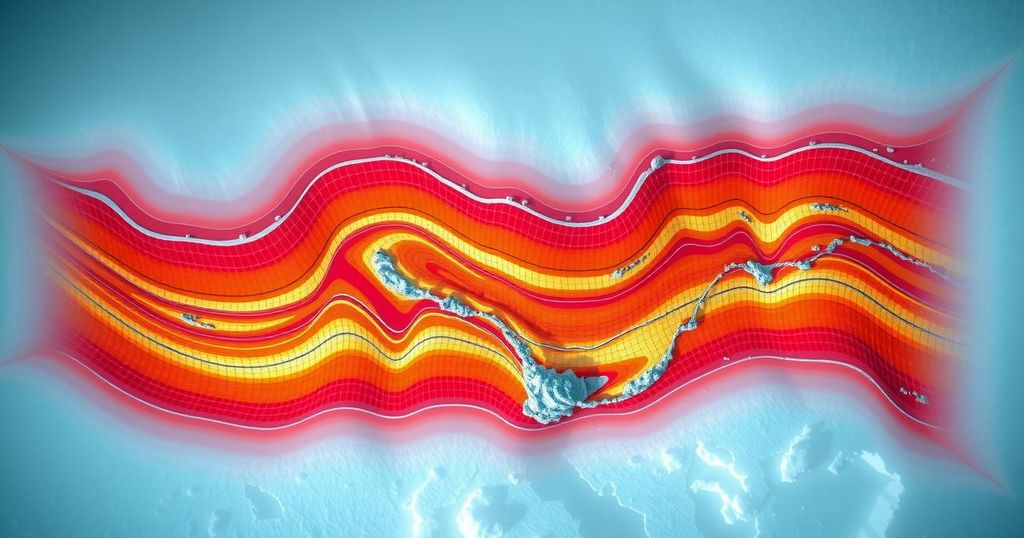A newly drilled ice core sample from Antarctica is believed to hold the oldest unbroken record of Earth’s climate, reaching back over one million years. The 2,800-meter core provides insights into ancient atmospheric conditions and may deepen understanding of historical climate changes, particularly during extreme cold periods. The research efforts are culminating at Little Dome C, where scientists aim to reveal the intricate relationship between greenhouse gases and global temperature over extensive timescales.
Recent drilling of a colossal ice core sample in Antarctica unveils potentially the oldest, unbroken climate timeline on Earth, extending over one million years. The 2,800-meter-long ice core, equivalent in length to San Francisco’s Golden Gate Bridge, encapsulates deep, compressed history through meter-long segments, which record as much as 13,000 years of ancient atmospheric gases and climate conditions. This unprecedented data offers critical insight into the current climate crisis and past extreme events that endangered human existence.
The significance of ice cores lies in their ability to preserve particles, water isotopes, and ancient air bubbles, enabling scientists to analyze historical climate and environmental conditions. The new drilling site, Little Dome C, was chosen for its extraordinarily thick ice, which is layered, providing an unperturbed record of the climate. Previous records, such as those obtained by the EPICA project in 2004, only extended back approximately 740,000 years, marking this new core as a pivotal advancement in climate research.
The successful extraction of this ancient ice core is expected to transform our understanding of Earth’s climate history, specifically regarding the interrelationship between greenhouse gases and temperature fluctuations over millions of years. As research continues, the insights gained may clarify the dynamics of climate cycles and the influence of anthropogenic factors, reaffirming the importance of ongoing scientific exploration in understanding climate change.
Original Source: www.sciencealert.com






